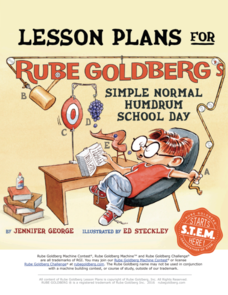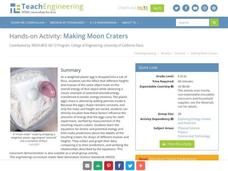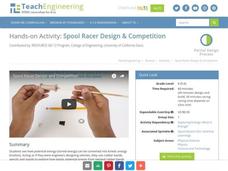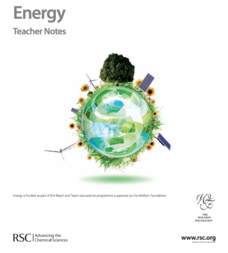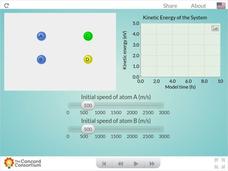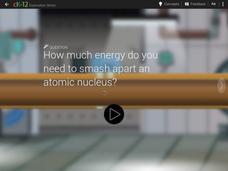Museum of Science
Comeback Can
Convert energy within a can. Learners build a can that suspends a weight inside the can via a rubber band. The pupils roll the can away from them as the rubber band wraps around itself. The force of the band unwinding brings the can back...
CK-12 Foundation
CK-12 Earth Science Concepts for Middle School
Explore a variety of science concepts in an interactive textbook created for middle school scholars. A lengthy table of contents takes readers to pages comprised of a subject overview, outline, and summary. Follow links further to find...
Rube Goldberg
Rube Goldberg's Simple Normal Humdrum School Day
If you're going to build a machine, you might as well make it interesting and amusing. A set of eight lessons and activities introduces simple machines using Rube Goldberg machines. A culminating project challenges techies to create and...
Essential Energy
Being a Safety Star (Stage 3)
A spark of static electricity contains up to 3,000 volts, while a lightning strike contains around 3,000,000 volts. To understand electricity, its power, and the safety considerations relating to it learners engage in a comprehensive...
Next Generation Science Storylines
How Can We Sense so Many Different Sounds from a Distance?
Dive into the mystery of sound waves! Scholars brainstorm questions about how sound travels and why different items make different sounds. They then conduct experiments to answer their questions.
Teach Engineering
Efficiency of an Electromechanical System
How efficient is a motor in a LEGO set? Future engineers conduct an activity where a LEGO motor-generator system raises an object to a specified height. They then show what they learned and use their measurements to calculate the energy...
Teach Engineering
Energy Efficiency
Using the resource is probably the most efficient way to learn about efficiency. The 18th installment of a 25-part Energy Systems and Solutions unit has pupils investigate energy efficiency through discussions and associated activities....
Teach Engineering
Energy Basics
Power up your lessons with an energetic resource. Scholars learn about work, force, energy, and power. They consider the relationships between these quantities through hockey puck scenarios and make calculations using formulas.
Science 4 Inquiry
Introducing the Types of Energy
Young scientists explore many different types of energy including light, heat, nuclear, sound, potential, and more. They match the types of energy and identify when energy transfers from one type to another.
Teach Engineering
May the Force Be With You: Drag
Do not let friction drag you down! The 11th segment in a series of 22 focuses on the fourth force acting upon an airplane—drag. Pupils learn about the effects and causes of drag.
Teach Engineering
Maximum Mentos Fountain
A messy fountain is potentially an energy experiment in disguise. Groups investigate the variables in creating a fountain from soda and Mentos. The last activity in a six-part series on energy has the class observe the fountain in terms...
Teach Engineering
Exploring Energy: Energy Conversion
The energy is not really lost, it is just converted to a different form. Pupils learn about the conversion of energy in the fifth segment of an energy unit with six parts. Learners develop an understanding of the conservation of energy...
Teach Engineering
Making Moon Craters
Create an egg-citing study of energy. Pupils investigate the effect of height and mass on the overall amount of energy of a falling object. The fourth segment in a six-part series on energy uses a weighted egg falling from different...
Teach Engineering
Exploring Energy: Kinetic and Potential
The potential of the energy in the class is moving. The third segment in a six-part unit on energy provides a deeper understanding of kinetic and potential energy. Learners understand the relationship between mass, speed, and energy and...
Teach Engineering
Spool Racer Design and Competition
Wind it up and let it go. Individuals build a basic spool racer in the second portion of a six-part unit on energy. After receiving three criteria, pupils modify their designs to meet the new challenge. Pairs compete against each other...
Royal Society of Chemistry
Energy—Gifted and Talented Chemistry
What has more energy than a room full of pupils after a fire drill? This lesson plan! Explore the changes in energy during different chemical reactions, discover why some reactions feel cold and others feel hot, and tackle the concept of...
Concord Consortium
Dissolving
What happens to substances when they dissolve in water? Young scientists investigate the dissolving process with a colorful interactive. The resource illustrates changes in potential energy as solute particles interact with water...
Concord Consortium
Phase Change
Energize your phase change lesson plans! Add a short but focused interactive into the mix and watch as pupils experience how states of matter react to changes in kinetic energy. The resource tracks the kinetic energy of a cold solid...
Concord Consortium
Different Excited States for Different Elements
Explore the excited states of atoms through an interactive lesson. Scholars adjust the initial speed of atoms and observe the kinetic energy of the system as the atoms interact. As they change the initial speed and location of the atoms,...
Concord Consortium
Excited Electrons
Excite your classes with an exploration of the kinetic energy of electrons. Scholars watch as excited electrons transfer their energy between one another. The simulation models this transfer while graphing the change in kinetic energy of...
Indiana Department of Education
Amusement of the Future
Take your class on the ride of their lives! Physical science scholars get an in-depth look at potential and kinetic energies in an amusement park-themed unit. Students research, design, and promote their own amusement parks, complete...
CK-12 Foundation
Energy Conservation Simulation
Does the amount of a roller coaster's energy change as it goes along the track? Scholars investigate when a roller coaster has potential and kinetic energy. They observe the changes as it goes up the initial hill follows it throughout...
CK-12 Foundation
Ski Jump
What are the three types of energy a ski jumper uses? If you said potential, kinetic, and heat, then you are correct. Scholars adjust the jumper's mass, jumper's form, and height of the start line in the simulation to display graphs of...
CK-12 Foundation
High Energy Particles
How much energy is required to break apart an atomic nucleus and does it vary based on the type of atom? Scholars virtually experiment with a linear accelerator in order to answer these questions. They alter the voltage, length of the...




